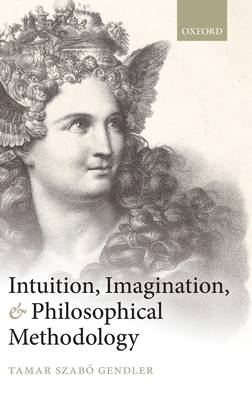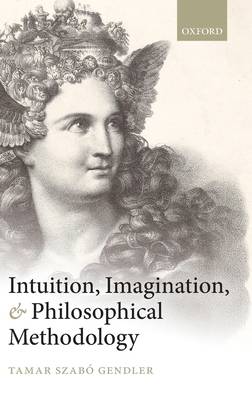
Door een staking bij bpost kan je online bestelling op dit moment iets langer onderweg zijn dan voorzien. Dringend iets nodig? Onze winkels ontvangen jou met open armen!
- Afhalen na 1 uur in een winkel met voorraad
- Gratis thuislevering in België vanaf € 30
- Ruim aanbod met 7 miljoen producten
Door een staking bij bpost kan je online bestelling op dit moment iets langer onderweg zijn dan voorzien. Dringend iets nodig? Onze winkels ontvangen jou met open armen!
- Afhalen na 1 uur in een winkel met voorraad
- Gratis thuislevering in België vanaf € 30
- Ruim aanbod met 7 miljoen producten
Zoeken
€ 209,45
+ 418 punten
Uitvoering
Omschrijving
Tamar Gendler draws together in this book a series of essays in which she investigates philosophical methodology, which is now emerging as a central topic of philosophical discussions. Three intertwined themes run through the volume: imagination, intuition and philosophical methodology. Each of the chapters focuses, in one way or another, on how we engage with subject matter that we take to be imaginary. This theme is explored in a wide range of cases, including scientific thought experiments, early childhood pretense, thought experiments concerning personal identity, fictional emotions, self-deception, Gettier cases, and the general relation of conceivability to possibility. Each of the chapters explores, in one way or another, the implications of this for how thought experiments and appeals to intuition can serve as mechanisms for supporting or refuting scientific or philosophical claims. And each of the chapters self-consciously exhibits a particular philosophical methodology: that of drawing both on empirical findings from contemporary psychology, and on classic texts in the philosophical tradition (particularly the work of Aristotle and Hume.) By exploring and exhibiting the fruitfulness of these interactions, Gendler promotes the value of engaging in such cross-disciplinary conversations in illuminating philosophical issues.
Specificaties
Betrokkenen
- Auteur(s):
- Uitgeverij:
Inhoud
- Aantal bladzijden:
- 374
- Taal:
- Engels
Eigenschappen
- Productcode (EAN):
- 9780199589760
- Verschijningsdatum:
- 4/02/2011
- Uitvoering:
- Hardcover
- Formaat:
- Ongenaaid / garenloos gebonden
- Afmetingen:
- 160 mm x 234 mm
- Gewicht:
- 725 g

Alleen bij Standaard Boekhandel
+ 418 punten op je klantenkaart van Standaard Boekhandel
Beoordelingen
We publiceren alleen reviews die voldoen aan de voorwaarden voor reviews. Bekijk onze voorwaarden voor reviews.











